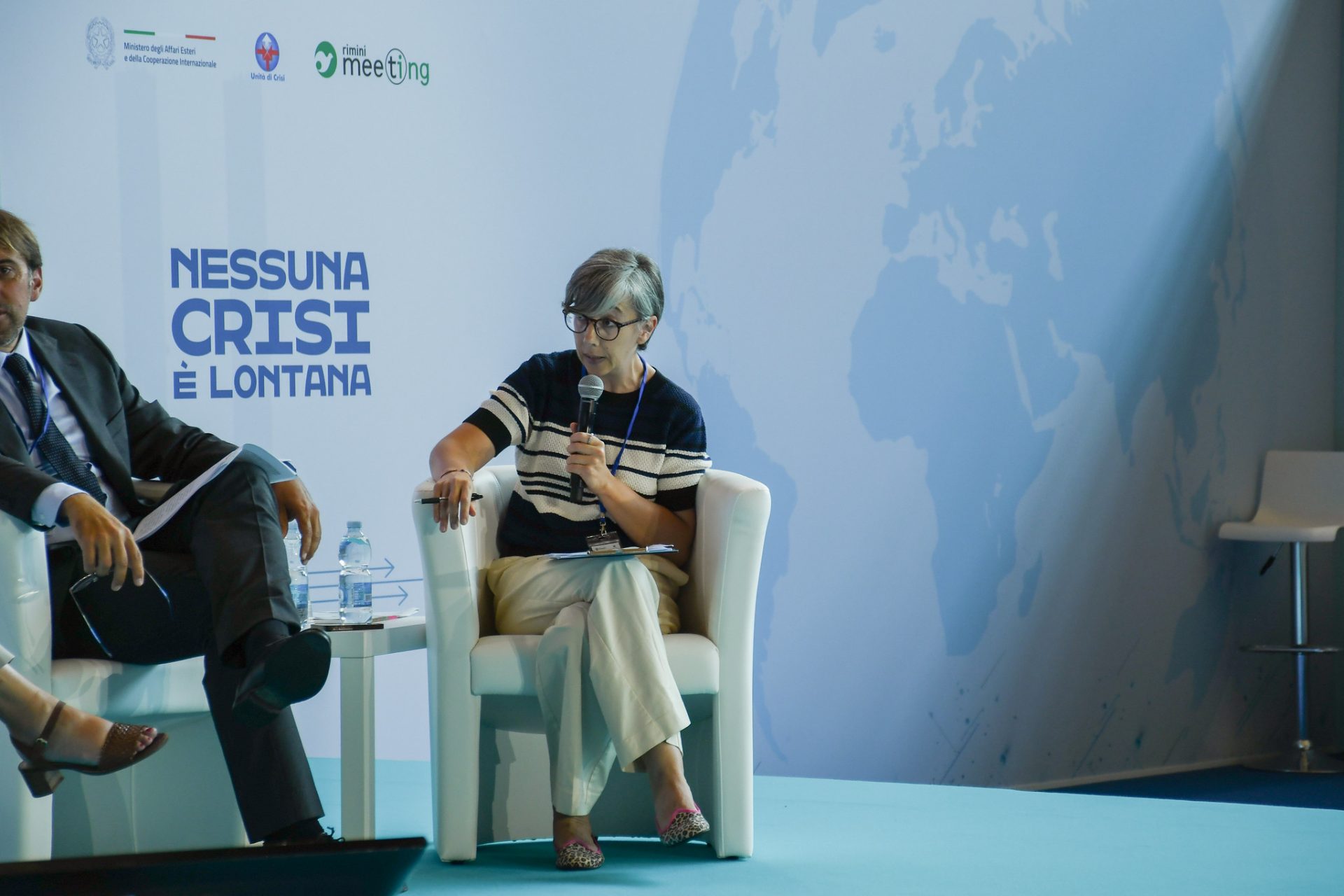Devastating, yet invisible. The Sudan crisis concerns us all.

Intersos resumed humanitarian interventions in Sudan in June 2024 and is present in Darfur in the west, as well as in the east of the country, which has been ravaged by a devastating civil war that broke out in April 2023. Alda Cappelletti , Senior Humanitarian Advisor at Intersos , reminded us that the Sudanese crisis is not a distant one. She coordinated the meeting “Sudan is not a distant crisis” during the Meeting currently underway in Rimini.
A crisis that has already displaced 14 million people. Last night, on the Ocean Viking humanitarian vessel of the NGO SOS Mediterranee, which "was deliberately and violently attacked in international waters by the Libyan coast guard, which fired hundreds of shots at our vessel," the organization writes, most of the 87 survivors are Sudanese.
"Today, our local staff numbers around a hundred, while our international staff numbers less than ten," Cappelletti told VITA. The NGO is primarily involved in healthcare and humanitarian protection.

" Children have been out of school for two years, the health system is collapsing, and there's a cholera epidemic ," Cappelletti continues, as he presents the numbers of the crisis generated by the military conflict that in just over two years has led to 14 million displaced people and 4 million refugees in neighboring countries, already fragile situations like South Sudan and Chad.
"It's a multilayered crisis with ethnic and social roots that is leading to a regional domino effect," which, however, the Intersos representative emphasizes, is not actually "a distant emergency" as many Westerners seem to perceive it.
What is "the world's worst crisis ," as political analyst and consultant Irene Panozzo has called it, seems to be getting little attention. Amid the general disregard for Africa, it's important to remember that Sudan isn't as far away as one might think: it overlooks the Red Sea and borders Egypt, which is on the other side of the Mediterranean.
"It's a difficult crisis to describe because there are no classic good guys or bad guys . The two fighting sides, the Sudanese Armed Forces (SAF) and the Rapid Support Forces (RSF), were both part of Omar al-Bashir's regime (which fell in 2019)," Panozzo explains. "The RSF are the heirs of the Janjaweed militias; they were transformed into a paramilitary force with access to economic resources, trafficking, and mercenaries. The fall of the regime in 2019 did not eliminate these structures; on the contrary, it exacerbated latent tensions." Panozzo added that the conflict is aggravated by "severe economic imbalances, control of gold mines, the role of regional powers like the Emirates and Saudi Arabia, and ethnic and territorial fractures that mark Sudan's history."
From its headquarters in Addis Ababa, the Italian Agency for Development Cooperation (AICS) continues to support the Sudanese population , says Michele Morana, responsible for Ethiopia, Eritrea, Sudan, South Sudan, and Djibouti. "From Ethiopia, we monitor the projects we implement with civil society organizations. Over the years, we have created a network with operators that allows us to carry out development and resilience interventions ," Morana explains, also emphasizing the support we seek to provide to refugees in the already fragile Tigray region.
"It's extraordinary to be here in Italy in the middle of August talking about Sudan and its forgotten crisis," said Valerie Guarnieri , assistant executive director, Programme Operations, WFP (the UN's global hunger programme), who spoke about the country's dire food crisis. " No one is more at risk than the Sudanese people; it's difficult to reach refugees. In Darfur, famine is already a reality. We've seen aid convoys attacked by drones, drivers killed, towns like Al-Fasher isolated and under siege. People are forced to eat garbage or pets just to survive." Guarnieri also denounced the lack of funding and the obstacles to humanitarian access.
In his speech, Marco Rusconi , director of the Italian Agency for Development Cooperation, emphasized: "Sudan remains a priority country for Italian Development Cooperation. This isn't just about emergency interventions, but about strengthening the foundations for a future of peace and development. We continue to work with an approach that combines neutrality, a widespread presence, and support for civil society."
"We closed the agency's headquarters in Khartoum, but not our cooperation, thanks to a more flexible approach," he added, noting the presence of Emergency's hospital among many other organizations. "Our cooperation system is made up of institutions, NGOs, missionaries, universities, and civil society. It's a unique force that allows us to be present where others retreat." "No crisis is far away, and Sudan asks us not to look away," the agency's director concluded.
Guarnieri encouraged those present to perk up their voices and get involved, even by financially supporting those helping the population: "If a million people donate a dollar, we can donate a million dollars." Irene Panozzo then invited them to discover the many stories of resilience within Sudanese civil society , the same society that helped bring down Omar al-Bashir's regime and that supports the same population through community kitchens: "There's something of a blackout, partly due to the lack of internet in several parts of the country."
Photo: Internally displaced persons walk along a street in Juba, South Sudan/AP/Brian Inganga/LaPresse
With an annual subscription, you can browse over 50 issues of our magazine, from January 2020 to the present: each issue offers a timeless story. Plus, you'll get all the extra content like themed newsletters, podcasts, infographics, and in-depth articles.
Vita.it



